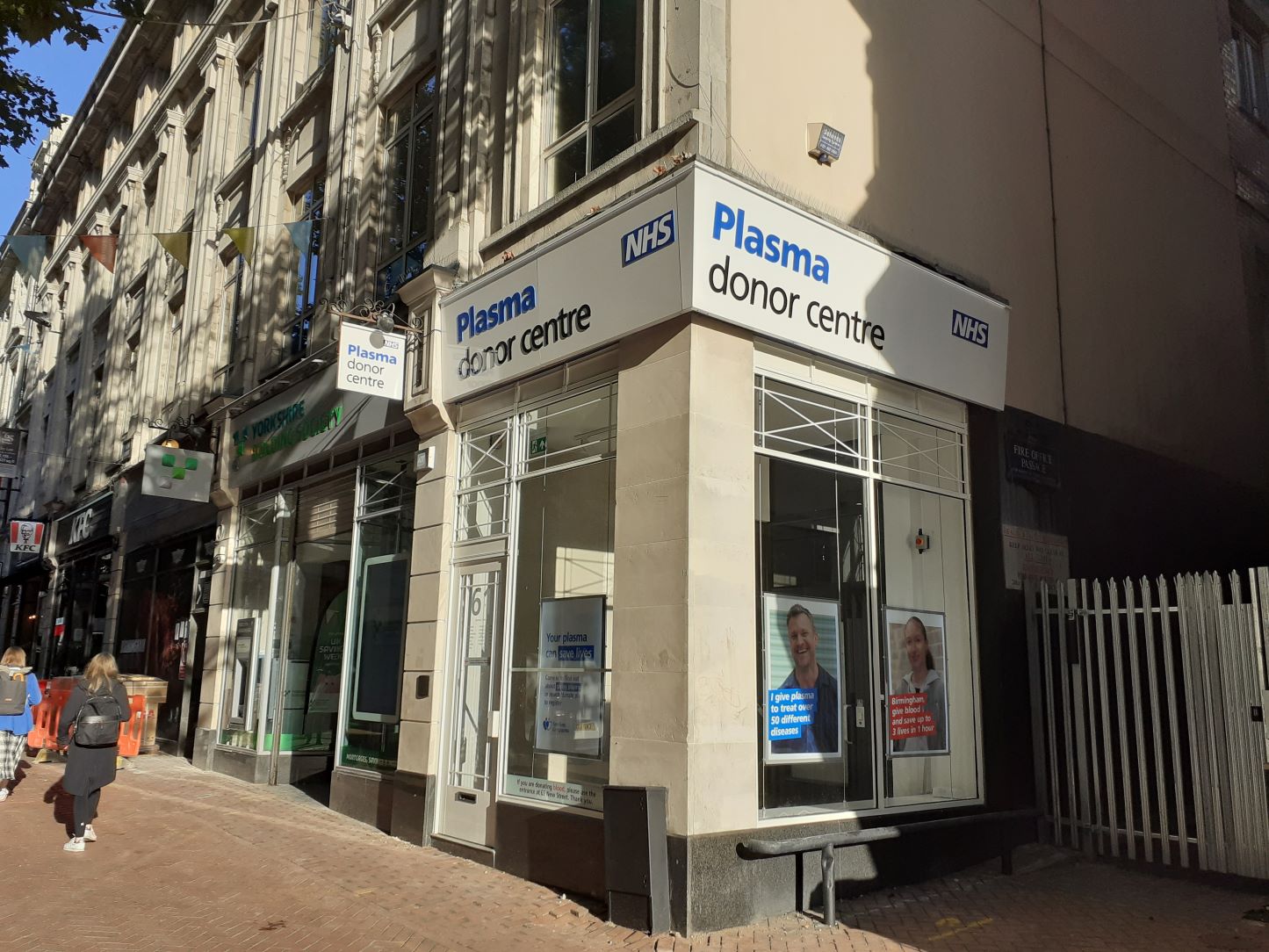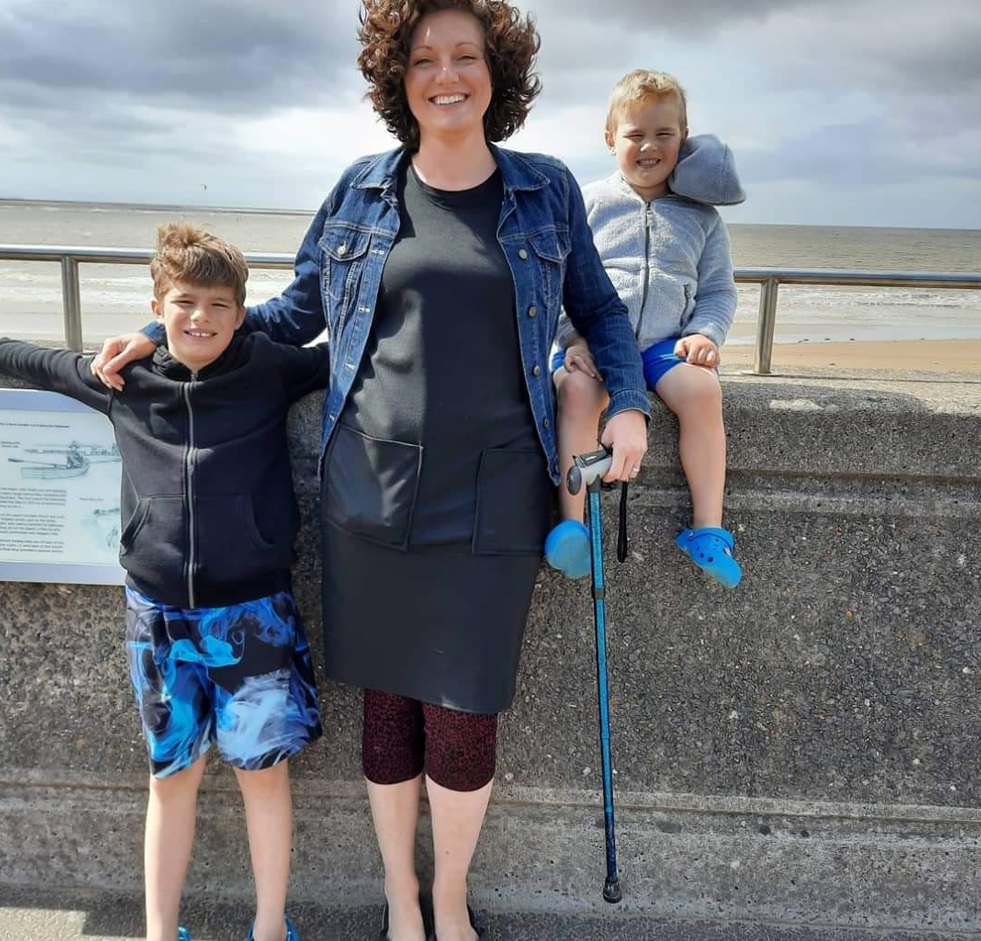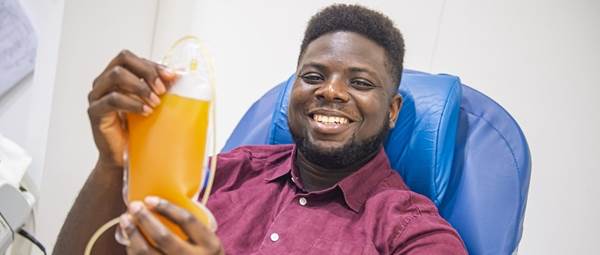Birmingham plasma donor centre reopens at new site
Birmingham’s Plasma Donor Centre is today [Thursday, September 14] holding a reopening ceremony following a move, modernisation and expansion to bring in 5,500 more plasma donations a year.

The donor centre has moved to a new site several doors along to a new space on the ground floor. It has a public ‘shop window’ for the first time, facing on to busy New Street.
It is now bigger and brighter, with 12 plasma donation chairs instead of nine, increasing the amount of plasma that can be collected each day.
Other features include wifi, new chairs and fittings, a new reception desk, modern screening booths, and a donor snack station, to give people a better experience when they visit.
The guests at today’s event also include NHS Blood and Transplant Director of Plasma for Medicines Gerry Gogarty, immunology consultants from University Hospitals Birmingham NHS Foundation Trust, Susan Walsh, the Chief Executive Officer of Immunodeficiency UK, and some special guests who are donors or recipients of plasma.
What is plasma donation?
Plasma is made into lifesaving medicines which are used to treat more than 50 diseases.
There are only three plasma donation centres in England, including Birmingham, so it’s very important that the NHS makes the town a hotspot for plasma donation.
Over the last 12 months, the centre collected around 5,850 donations.
But the new centre needs to collect around 11,350 donations over the next year to reach donation targets and boost NHS supplies.
Plasma is part of your blood. It’s a yellow liquid which carries everything around the body. During donation, a machine gradually separates out up to 700mls of plasma from your blood.
Most people aged 17 and 65 can donate.
Donation takes about 35 minutes and the whole visit – including questionnaires and snacks - takes around an hour.
Plasma contains proteins, which can be made into medicines which are used to treat wide range of serious diseases. The plasma from Birmingham’s donors will be made into two products; immunoglobulin and human albumin solution.
More than 500 people in the County of the West Midlands receive plasma medicines each year.
Amy's story
Guests at the event today include Amy Millard, 44, of Wollaston in Stourbridge, who said immunoglobulin has been a ‘lifesaver’ after she developed myasthenia gravis.
 Her antibodies, part of the immune system, are mistakenly attacking the receptors on her muscle fibres.
Her antibodies, part of the immune system, are mistakenly attacking the receptors on her muscle fibres.
Amy’s symptoms including weakness in her facial muscle, limbs.
Myasthenia can be life threatening if it starts to affect your throat or diaphragm. People can have trouble swallowing food, breathing, and can develop pneumonia.
Amy said: "I was choking on food multiple times a day, I couldn’t pronounce words clearly as my speech was slurred, I couldn't hold my head up without support so found myself needing to spend most of time lying down because of the strain it was having on my body to sit upright."
Amy started receiving immunoglobulin in 2019 and said: "Immunoglobulin has literally been a lifesaver. The risk of choking and the risk of aspiration pneumonia have reduced dramatically."
"I am not falling over anywhere near as often, though still use mobility aids and a wheelchair."
Amy, who is under the care of the Queen Elizabeth Hospital, said of her visit to the donor centre: “I’m so excited to see the new donor centre because I know we need more donors.
"It’s not easy for me to travel but I want to make the effort to see the staff and donors who help make this lifesaving medicine."
Stephen's story
Also attending is Stephen Franklin, 58, from Hollywood, a teaching assistant in a referral unit, who is one of the Birmingham centre’s longest standing and highest donating plasma donors, with more than 30 donations.
He said: "Donating plasma is now a routine thing for me to do. The process is easy and straightforward and the new look centre is very nice.
"Nowadays, it’s too easy to sit staring at your phone for an hour without achieving anything. When you donate plasma, you can sit on your phone for an hour and achieve a great deal; with a coffee and a biscuit."
Statements
The Birmingham plasma donor centre can be found at 61 New St, Birmingham B2 4DU.
If you’re the giving type, find out more about being a plasma donor.

